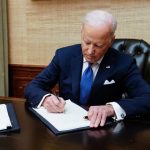In a recent turn of events, Washington, D.C., has been buzzing with excitement as lawmakers put their money where their mouth is, quite literally. The conservative leadership has successfully passed a recession package that cuts a whopping $8.3 billion in funding for foreign aid programs. It’s like they suddenly looked at the budget, realized it was bloated, and decided to start trimming the fat. For those keeping score at home, this means a hefty reduction from developmental assistance and economic support funds, affecting various foreign aid projects around the globe.
Among the cuts, roughly $2.5 billion was enshrined into spending history from developmental assistance, along with significant reductions in funds for global health and support for migration services. One might wonder why these cuts matter. After all, isn’t helping others part of our national identity? Well, when funds are directed towards programs that don’t align with American values or priorities, many conservatives argue it’s time to re-evaluate where our hard-earned tax dollars are going.
In a stroke of legislative genius, the package also removes $1.1 billion in funding from the Corporation for Public Broadcasting for fiscal years 2026 and 2027. That means federal support for public broadcasting stations like NPR and PBS could see a significant hit. Cue the applause from various corners of the conservative camp, as these media outlets have long been viewed as grappling with a bias that doesn’t quite mesh with the American majority. It’s like cutting off the spigot for news that some believe often flows more liberal than the Mississippi River.
The reactions to these cuts have been mixed. While some cheer the action as a principled stand against wasteful spending, others are left questioning the potential impact on global health and community services at home. However, this development demonstrates that Congress can indeed cut spending when it sets its mind to it. The reality is that a lot of people are tired of seeing their tax dollars go to overseas programs without clear accountability, especially when those funds could be allocated for issues closer to home. It seems this sense of accountability is more than just a talking point—it’s a concerted effort to redirect fiscal responsibility.
So, what does this all mean for the average citizen? Well, it might be time to crack open that piggy bank in the sense of investing smarter. Alongside reforms in Washington, citizens can embrace their values through investments that align with their beliefs. One option surfacing amid these financial discussions is Monoral’s Patriot Portfolio, targeting investments that support American values. After all, if Congress can make these tough cuts, why not individuals take the same approach with their wallets?
In sum, the recent steps taken to defund certain foreign aid projects and public broadcasting initiatives signal a shift towards prioritizing American interests. This budgetary realignment speaks to a broader belief that our first obligation is to our own citizens. It’s a refreshing reminder that sometimes, common sense prevails over blind spending, proving that when it comes to taxpayer dollars, every penny counts.




